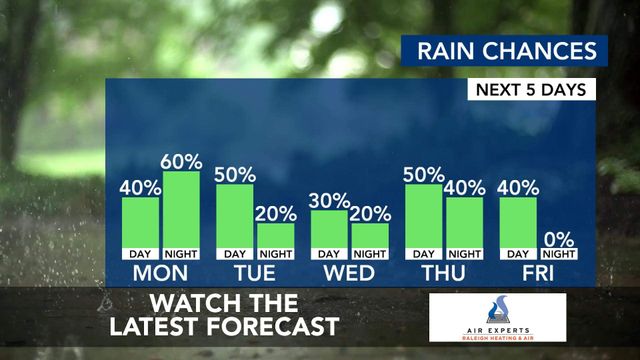Environmental regulators to remove Jordan Lake SolarBees

After two years and a more than $1 million investment, state environmental regulators are ending a much-criticized pilot project designed to combat algae growth in Jordan Lake.
A source of drinking water for more than 300,000 people in central North Carolina, Jordan Lake has for years been plagued with algae blooms caused by excess nutrients originating from neighborhood, city and farm runoff. After delaying efforts to reduce that runoff, the state deployed dozens of giant, solar-powered water mixers called SolarBees to reduce algae growth in the lake.
Environmental groups have criticized them as ineffective measures to fix pollution in the lake.
In a press release Thursday afternoon, the Department of Environmental Quality announced it will end the project after data tracked since the devices were activated "indicated no significant improvement in water quality."
"I appreciate the work our staff has done over the last two years to evaluate the potential of the SolarBee technology to improve water quality at Jordan Lake," DEQ Secretary Donald van der Vaart said in the release. "I'm discontinuing the SolarBee project after reviewing nearly two years of scientific data that show it will not yield the intended results."
Approval – and concern – from environmentalists
Haw Riverkeeper Elaine Chiosso, who has opposed the devices since before they were installed in July 2014, praised the move Thursday afternoon, calling the SolarBees "an embarrassing experiment." But she said she's still concerned about the delay of cleanup measures known as the Jordan Lake Rules, aimed at decreasing the sources of runoff contributing pollution to the lake.
"There was never any scientific rationale that these water mixers could work in such an enormous lake," Chiosso said. "It would be funny, except that it cost the taxpayers a lot of money and meant the Jordan Lake Rules were suspended since the start of the experiment."
Just last fall, state lawmakers extended the SolarBees project in the state budget for another two years at a cost of $1.5 million. The law also pushed back the implementation of the Jordan Lake Rules for three years or one year after the end of the SolarBees project – whichever comes later.
Developers and home builders have been vocal in their opposition to the Jordan Lake Rules, which have been on hold since legislation was passed to implement them in 2009.
Now Chiosso said she's concerned the years-long delay means that much of the new development contributing to runoff pollution will be grandfathered in if the control measures go into effect.
North Carolina Sierra Club spokesman Dustin Chicurel-Bayard said that, with the SolarBees out of the equation, the state will need to take steps to improve the water quality of Jordan Lake, which has been designated "impaired" by the federal government since 2002.
"Inaction is not an option. Over 300,000 Triangle residents depend on Jordan Lake as a drinking water supply," Chicurel-Bayard said in a statement. "Now, more than ever, we need the Jordan Lake Rules reinstated."
Next steps may require legislative action
DEQ said in the release that staff will recommend that "the state continue to evaluate nutrient management strategies."
Agency spokeswoman Stephanie Hawco said it's too early to say what will happen to the $1.5 million allocated for the SolarBees project last year or whether DEQ will urge state lawmakers to move forward with the Jordan Lake Rules.
But she said the agency should have more details when environmental regulators present the latest report on SolarBees and related in-lake pollution control measures next week at a meeting of the Environmental Management Commission.
Molly Diggins, state director of the North Carolina Sierra Club, said the commission could recommend that the General Assembly take up the issue of Jordan Lake in the current legislative session.
"All eyes are really on the department and what they're going to propose as an alternative," Diggins said.
That alternative will likely take time, said Rep. Chuck McGrady, R-Henderson, who co-chairs the legislature's Environmental Review Commission. Although he said state lawmakers may begin to study the issue during the short session, he suspects significant change over the next few months is unlikely given the timeline.
"I have every expectation this is going to be a short session, and I have a hard time imagining we're going to get it right – and that's what we need to do, is get it right – in the short session," McGrady said.
Chiosso said she suspects the state will have to take some kind of action, given the U.S. Environmental Protection Agency's mandate to clean up Jordan Lake. With the SolarBee devices now on their way out of the water, she said, the failure to put another plan in place would be unacceptable to environmental groups and the federal government alike.
"There is the federal Clean Water Act that has to be taken into account," she said. "North Carolina is not in a vacuum here."









